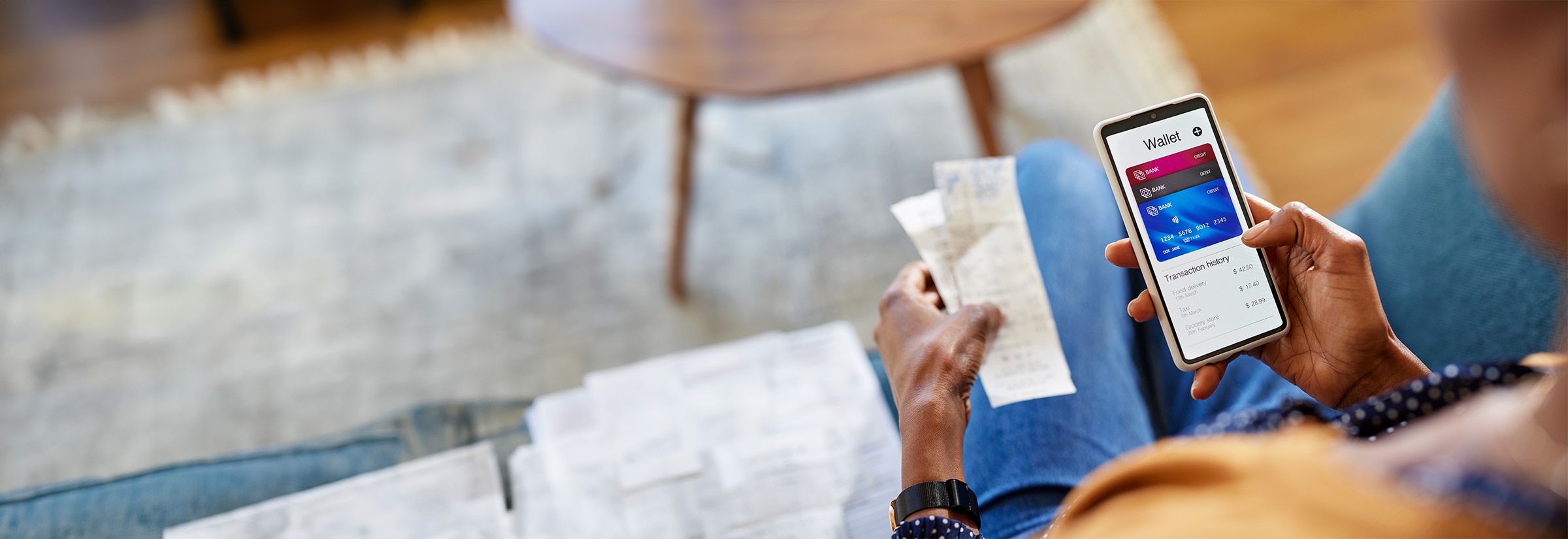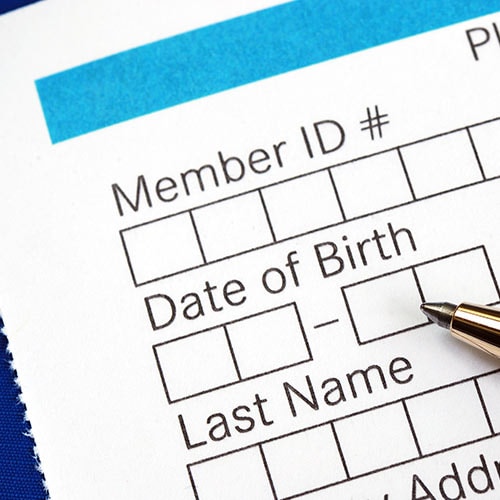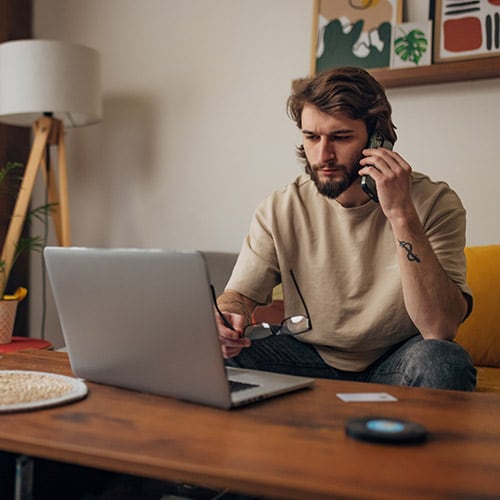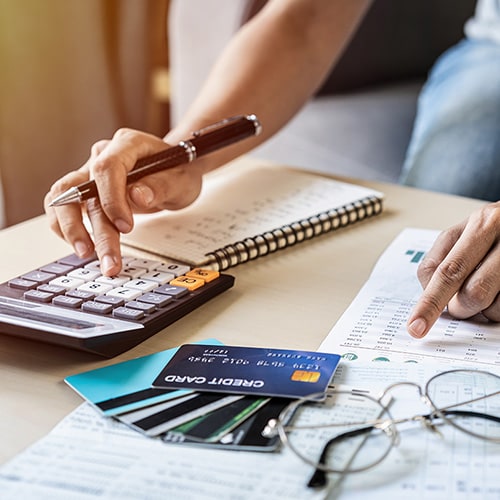Digital wallets are convenient, but are they safe? Can you protect your credit card and bank account information while using them?
You can, and the tech companies behind digital wallets have taken steps to protect the financial information of users. But you can still take steps on your own to provide an additional boost to the security of your digital wallets.
Are digital wallets popular?
Digital wallets have skyrocketed in popularity since the start of the COVID-19 pandemic. Blackhawk Network found in October 2020 that 55 percent of surveyed consumers were using digital wallets. That figure was only 38 percent before the pandemic.
This isn't surprising: Mobile wallets are convenient, especially during a pandemic in which many consumers still want to spend less time in grocery stores, restaurants, and retailers.
With a digital wallet, you simply save your credit card or other payment information with a service such as Google Pay, PayPal or Wallet by Apple. When you order online from a restaurant, supermarket, department store, or other retailer, you pay through your digital wallet, selecting whichever credit card or payment method you prefer.
You can then quickly pick up your order at the retailer or restaurant, without having to pay at the checkout lane. This limits your time in the store and your physical interaction with others.
Plus, you can also use your digital wallet for in-store purchases.
How digital wallets work
To understand how to boost the security of your digital wallet, it helps to understand how these systems work.
There are several digital wallets available. Google offers Google Pay. Apple offers Wallet. And Samsung runs Samsung Pay. You can also choose from digital wallets such as Venmo and PayPal.
Mobile wallets all work basically the same way: You sign up for a digital wallet, providing a username, email and password. You can then access your wallet from your phone, laptop, tablet, or other devices. Once you’ve set up a wallet, you can connect different methods of payment to it, including credit cards, debit cards and bank accounts.
You can then make purchases with your digital wallet through your smartphone, computer, or other devices. When you make a purchase, you’ll have the option to choose one of the payment methods connected to your wallet.
This saves you time: Instead of paying with cash or a card at a retailer or entering your credit card information when making an online purchase, you simply click on your digital wallet to make your purchase.
Are digital wallets safe?
For the most part, digital wallets, like venmo, are safe.
The Identity Theft Resource Center says that digital wallets rely on proven security measures such as two-factor authentication and PINs that can only be used once.
Wallets also use encryption technology to scramble the financial and password information of users. This makes it more difficult for hackers to intercept this information when users are making purchases with their digital wallets.
You likely don’t have to worry that relying on digital wallets, and the apps that power them, is inherently riskier than paying with credit or debit cards at a cash register or other point-of-sale technology.
But you should also be careful: Thieves can still take advantage of your digital wallets, most notably if you lose your smartphone or any other device that connects to them.
How to boost the safety of digital wallets
The biggest threat to your bank or credit card accounts when you’re using digital wallets? If you lose your phone and it falls into the hands of a thief.
If your phone or your digital wallet aren’t locked by passwords or other log-in requirements, a thief could gain access to your digital wallet if he or she finds or steals your phone. Thieves can use your digital wallet to run up charges on your credit cards or withdraw money from your bank accounts, often before you even realize that your phone or other device is missing.
Here are some tips to help protect against misuse.
Lock your phone
The first move you should make to protect yourself is to lock your phone with a password, swipe code or biometric authentication. This last option is particularly powerful: To access your phone, you need to press your finger against it. Or maybe your phone has to recognize your face before it unlocks. With this protection, it is far more difficult for thieves to unlock your phone.
If you are using a password to unlock your phone, make sure it is difficult to guess and contains a mix of letters, numbers, and symbols. The more complex, the more difficult it is for a hacker to crack it. If you are using a swipe code, make sure to never swipe it in front of others. You never know who might be watching and memorizing your code.
Activate security apps
Make sure to install security apps on your smartphone, too, that can help you locate your phone if it is stolen or lost. These security apps can also help you lock your phone remotely or erase any log-in information you've saved on your device.
Take advantage of these features. If you can't find your phone, you want to be sure that whoever else locates it can't access it and the financial information stored on it.
Avoid public Wi-Fi
Be careful about where you use your digital wallet, too. Never use it or payment apps on public Wi-Fi. These free Wi-Fi systems can be easy for hackers to crack. Skilled cybercriminals might be able to track your online activity, including any payments you make.
Track your financial accounts
Finally, log into your online credit card portals and bank accounts frequently. Review the list of transactions, payments, and withdrawals for suspicious activity.
If you see purchases you didn't make or withdrawals you didn't authorize, a criminal might have gained access to your financial accounts. Immediately report these suspicious transactions to your bank or credit card provider.
Editor’s note: Our articles provide educational information. LifeLock offerings may not cover or protect against every type of crime, fraud, or threat we write about.

Your taxes could be getting filed in your name by someone else.
LifeLock is part of Gen – a global company with a family of trusted brands.
Copyright © 2026 Gen Digital Inc. All rights reserved. Gen trademarks or registered trademarks are property of Gen Digital Inc. or its affiliates. Firefox is a trademark of Mozilla Foundation. Android, Google Chrome, Google Play and the Google Play logo are trademarks of Google, LLC. Mac, iPhone, iPad, Apple and the Apple logo are trademarks of Apple Inc., registered in the U.S. and other countries. App Store is a service mark of Apple Inc. Alexa and all related logos are trademarks of Amazon.com, Inc. or its affiliates. Microsoft and the Window logo are trademarks of Microsoft Corporation in the U.S. and other countries. The Android robot is reproduced or modified from work created and shared by Google and used according to terms described in the Creative Commons 3.0 Attribution License. Other names may be trademarks of their respective owners.




